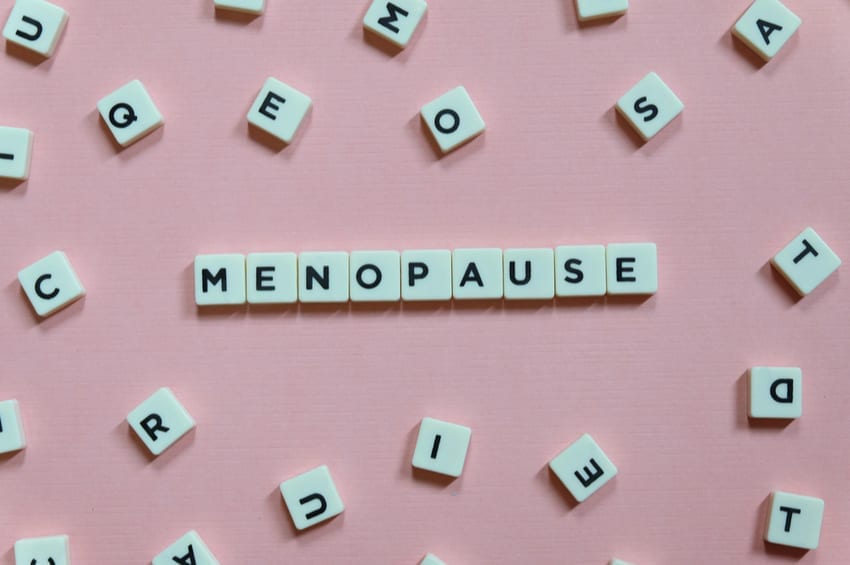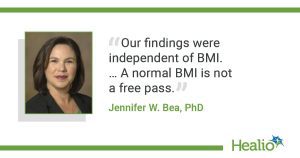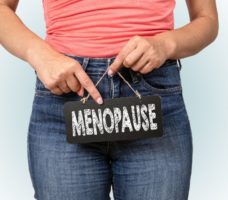Menopause is a natural biological process that every woman experiences. You might be wondering how the ketogenic diet can affect menopause. Let’s discuss going keto and menopause and what you should know.
What is Menopause?
Menopause is a biological transition that marks the end of menses and a natural decline in female reproductive hormones. For some women, menopause comes along with symptoms like fatigue, hot flashes, mood changes, and sleep problems [1].
Consuming a nutrient-dense diet might help balance your hormone levels and diminish or alleviate certain symptoms of menopause. The ketogenic diet is high-fat, moderate protein, and low-carb and it’s often recommended to provide relief from menopause symptoms.
Keto and Menopause
The ketogenic diet might be linked with several benefits, particularly during menopause. Here are some of the possible benefits:
1. Improve Insulin Sensitivity
Menopause can change hormone levels, and, in some cases, menopause can reduce insulin sensitivity and impair your body’s ability to effectively use insulin. Insulin is a hormone responsible for carrying sugar from your bloodstream into your cells to be used for energy [2,3].
Research suggests the ketogenic diet might improve insulin sensitivity and promote better blood sugar control. One study looked at women with ovarian or endometrial cancer following a keto diet for 12 weeks. The results showed improved insulin sensitivity and insulin levels. It’s unclear whether the results would still apply for menopausal women without these types of cancer [4,5].

One review reported reducing carb consumption might decrease insulin levels and improve hormonal balances, which would be especially beneficial during menopause. Studies suggest insulin resistance might be associated with a heightened risk of hot flashes, which are a problem for many menopausal women [6,7,8].
2. Prevent Weight Gain
Lots of women gain weight during menopause. Many experts attribute this to a slower metabolism and hormonal fluctuations. Some research shows decreasing carb intake might help prevent weight gain linked with menopause. For example, one study of 88,000 women found that following a low-carb diet was associated with a reduced risk of postmenopausal weight gain.
Following a low-fat diet was linked to an increased risk of weight gain. It’s also important to note that the reduced-carb diets in this study contained significantly more carbs compared to a traditional ketogenic diet. More studies are needed on menopause, keto, and weight gain specifically [9].
3. Reduce Cravings
During menopause, many women experience increased cravings and hunger [10]. Some studies showed a keto diet might decrease appetite and hunger, which could be particularly beneficial during menopause [11].
One 95-person study, including 55 women following a keto diet for 9 weeks, showed increased levels of glucagon-like peptide 1 (GLP-1) – a hormone that regulates appetite. This increase was observed in the female participants [12].
Another small study reported a low-calorie keto diet reduced appetite and levels of the hunger hormone ghrelin. More studies are needed to evaluate how the keto diet might affect appetite and cravings, specifically in menopausal women [13].

Concluding Thoughts
The ketogenic diet might be linked with several benefits during menopause. Studies show the keto diet can improve cardiovascular risk factors by decreasing body mass index (BMI), body weight, percent body fat, triglyceride levels, and blood pressure, particularly in those who are obese or overweight [14].
The consumption of certain other micronutrients, such as choline, selenium, and vitamins C, B12, A, and K, might also increase on a ketogenic diet [15,16].
On the other hand, if you experience the keto flu, it could exacerbate symptoms of menopause, such as sleep problems and fatigue. Read our informative article for ways to avoid or minimize the keto flu. Keto flu symptoms usually resolve in a few days to a week if you stay hydrated and get plenty of electrolytes [17,18].
The ketogenic diet might offer a range of benefits for women during menopause, including decreased weight gain, reduced cravings, and increased insulin sensitivity.
For more in-detail information about the ketogenic diet, your cycle, hormone regulation, and menopause, check out Keto Class within Keto Club! We have 2 entire Keto Classes dedicated to women’s reproductive health and the ketogenic diet.
References
1. Peacock, K., & Ketvertis, K. M. (2020). Menopause, Menopause – StatPearls – NCBI Bookshelf (nih.gov)
2. Slopien, R., Wender-Ozegowska, E., Rogowicz-Frontczak, A., Meczekalski, B., Zozulinska-Ziolkiewicz, D., Jaremek, J. D., Cano, A., Chedraui, P., Goulis, D. G., Lopes, P., Mishra, G., Mueck, A., Rees, M., Senturk, L. M., Simoncini, T., Stevenson, J. C., Stute, P., Tuomikoski, P., Paschou, S. A., Anagnostis, P., & Lambrinoudaki, I. (2018). Menopause and diabetes: EMAS clinical guide. Maturitas, DOI:
3. Freeman, A. M., & Pennings, N. (2020). Insulin Resistance, Insulin Resistance – StatPearls – NCBI Bookshelf (nih.gov)
4. Hamdy, O., Tasabehji, M. W., Elseaidy, T., Tomah, S., Ashrafzadeh, S., & Mottalib, A. (2018). Fat versus carbohydrate-based energy-restricted diets for weight loss in patients with Type 2 diabetes. Curr Diab Rep, 18(12), 128. DOI: 10.1007/s11892-018-1103-4
5. Cohen, C. W., Fontaine, K. R., Arend, R. C., Alvarez, R. D., Leath III, C. A., Huh, W. K., Bevis, K. S., Kim, K. H., Straughn Jr, J. M., & Gower, B. A. (2018). A ketogenic diet reduces central obesity and serum insulin in women with ovarian or endometrial cancer. Journal of Nutrition, 148(8), 1253-1260. DOI:
6. McGrice, M., & Porter, J. (2017). The effect of low carbohydrate diets on fertility hormones and outcomes in overweight and obese women: A systematic review. Nutrients, 9(3), 204. DOI: 10.3390/nu9030204
7. Iliodromiti, S., Sattar, N., Delles, C., Nelson, S. M., Gill J. M. R., & Lumsden, M. A. (2019). Menopausal hot flashing and endothelial function in two vascular beds: Findings from a cross-sectional study of postmenopausal women. Menopause, 26(9), 1002-1009. DOI: 10.1097/GME.0000000000001386
8. Huang, W-Y., Chang, C-C., Chen, D-R., Kor, C-T., Chen, T-Y., & Wu, H-W. (2017). Circulating leptin and adiponectin are associated with insulin resistance in healthy postmenopausal women with hot flashes. PLoS One, 12(4), e0176430. DOI:
9. Ford, C., Chang, S., Vitolins, M. Z., Fenton, J. I., Howard, B. V., Rhee, J. J., Stefanick., M., Chen, B., Snetselaar, L., Urrutia, R., & Frazier-Wood, A. C. (2017). Evaluation of diet pattern and weight gain in postmenopausal women enrolled in the women’s health initiative observational study. British Journal of Nutrition, 117(8), 1189-1197. DOI: 10.1017/S0007114517000952
10. Duval, K., Prud’homme, D., Rabasa-Lhoret, R., Brochu, M., Lavoie, J-M., & Doucet, E. (2013). Effects of the menopausal transition on dietary intake and appetite: A MONET group study. European Journal of Clinical Nutrition, 68(2), 271-276. DOI:
11. Gibson, A. A., Seimon, R. V., Lee, C. M. Y., Ayre, J., Franklin, J., Markovic, T. P., Caterson, I. D., & Sainsbury, A. (2015). Do ketogenic diets really suppress appetite? A systematic review and meta-analysis. Obesity Reviews, 16(1), 64-76. DOI:
12. Lyngstad, A., Nymo, S., Coutinho, S. R., Rehfeld, J. F., Truby, H., Kulseng, B., & Martins, C. (2019). Investigating the effect of sex and ketosis on weight-loss induced changes in appetite. American Journal of Clinical Nutrition, 109(6), 1511-1518. DOI: 10.1093/ajcn/nqz002
13. Sumithran, P., Prendergast, L. A., Delbridge, E., Purcell, K., Shulkes, A., Kriketos, A., & Proietto, J. (2013). Ketosis and appetite-mediating nutrients and hormones after weight loss. European Journal of Clinical Nutrition, 67(7), 759-764. DOI:
14. Hwang, C-L., Ranieri, C., Szczurek, M. R., Ellythy, A. M., Elokda, A., Mahmoud, A. M., & Phillips, S. A. (2020). The effect of low-carbohydrate diet on macrovascular and microvascular endothelial function is not affected by the provision of caloric restriction in women with obesity: A randomized study. Nutrients, 12(6), 1649. DOI: 10.3390/nu12061649
15. Taylor, M. K., Swerdlow, R. H., Burns, J. M., & Sullivan, D. K. (2019). An experimental ketogenic diet for Alzheimer Disease was nutritionally dense and rich in vegetables and avocado. Curr Dev Nutr, 3(4), DOI: 10.1093/cdn/nzz003
16. McSwiney, F. T., & Doyle, L. (2019). Low-carbohydrate ketogenic diets in male endurance athletes demonstrate different micronutrient contents and changes in corpuscular haemoglobin over 12 weeks. Sports (Basel), 7(9), 201. DOI: 10.3390/sports7090201
17. Masood, W., Annamaraju, P., & Uppaluri, K. R. (2020). Ketogenic diet. Ketogenic Diet – StatPearls – NCBI Bookshelf (nih.gov)
18. Santoro, N., Epperson, C. N., & Mathews, S. B. (2015). Menopausal symptoms and their management. Encodrin Metab Clin North Am, 44(3), 497-515. DOI: 10.1016/j.ecl.2015.05.001
The post Menopause and the Keto Diet: What You Need to Know appeared first on Ketogenic.com.
This content was originally published here.








